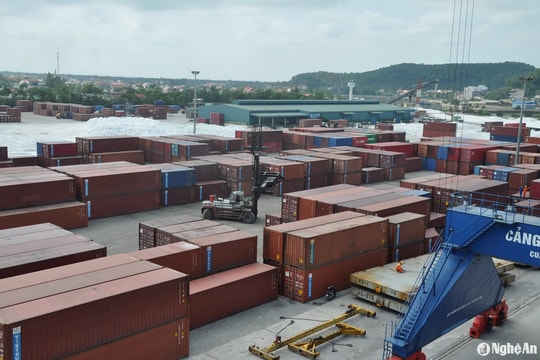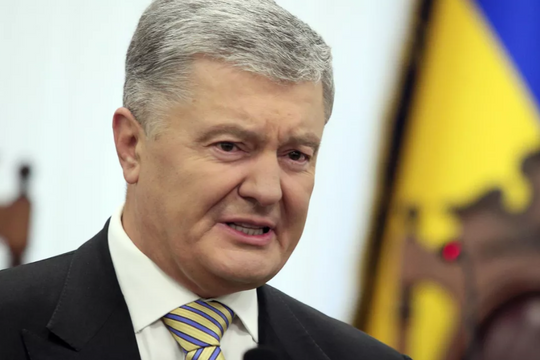Chairman of Vietnam Automobile Transport Association: "I feel ashamed if you don't reduce fares"
Faced with the move of taxi companies to "look" at each other to adjust fares, the Chairman of the Vietnam Automobile Transport Association reacted strongly: "You have to change, otherwise the press will keep saying you are being lazy and pickpocketing, I feel very ashamed."
The reduction is not commensurate
The meeting to discuss solutions to reduce road transport fares organized by the Ministry of Transport earlier this week with the participation of the Price Management Department (Ministry of Finance) was heated from the first minute, with information provided by the Department of Transport (Ministry of Transport) about the fact that transport fares have remained "frozen" since the beginning of 2016 until now.
Specifically, while the price of Ron92 gasoline was adjusted 4 times with a total decrease of 2,650 VND/liter (16%), diesel oil decreased 4 times with an even larger total decrease - 2,400 VND/liter (20%), not all taxi companies announced a fare reduction and if so, the reduction... was very different.
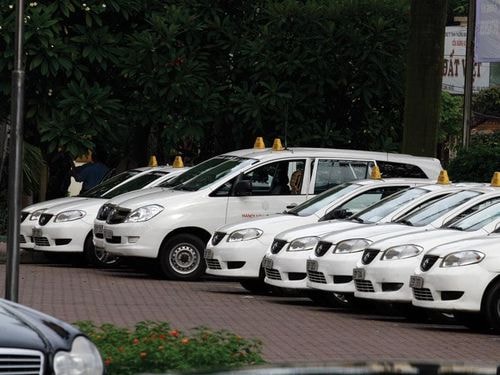 |
| . |
In Ho Chi Minh City, which has the largest number of taxis in the country, 23 companies have reduced fares by an average of 3 to 4%. In Hanoi, the number of taxi companies adjusting fares on the meter is up to 86 and the average reduction is 6-12%. The record for the biggest reduction in taxi fares belongs to companies in Bac Kan (14 - 25%); Bac Giang (3.06 - 20%). The common reduction in fixed-route passenger transport companies is from 3 to 7%, depending on the type of route (more or less BOT toll stations which have just tripled road use fees).
It is worth mentioning that, according to Mr. Tran Bao Ngoc, Director of the Department of Transport, in the current transport cost structure, fuel costs are estimated to account for 25-35% for gasoline-powered vehicles (mainly taxis), 35-45% for diesel-powered vehicles (mainly passenger and cargo transport), so the fare reduction applied by businesses is not commensurate.
Meanwhile, according to the explanation of Mr. Ta Long Hy, Chairman of the Ho Chi Minh City Taxi Association, before the Lunar New Year 2016, taxi companies in the city reduced fares, with the reduction ranging from 300 to 500 VND/km. “Businesses do not want to increase or decrease prices, because each adjustment is very costly. Many taxi companies have contracted with drivers, so when the gasoline price increases, the drivers 'cry' and do not run, when the gasoline price decreases, the drivers benefit, but the businesses do not benefit at all,” said Mr. Hy.
However, a representative of the Ho Chi Minh City Taxi Association confirmed that on the afternoon of February 22, a series of taxi companies in Ho Chi Minh City had registered to reduce prices. “Taxi companies are not foolish enough to keep prices that are not close to the market level, because consumers will boycott. Currently, companies almost have to 'look' at each other to adjust fares,” said Mr. Hy.
Meanwhile, according to Mr. Do Quoc Binh, Chairman of the Hanoi Taxi Association, to reduce fares, taxi companies must submit applications for price reduction registration to the authorities. If approved, the companies will temporarily suspend operations to install specialized software, inspect meters, reprint price lists, and notify customers, at a cost of about 500,000 VND/car/installation. Thus, for a unit with 200 vehicles, the cost for 3 adjustments will be about 300 million VND.
Sharing this opinion, Mr. Bui Danh Lien, Chairman of the Hanoi Transport Association, said that the continuous sporadic reduction in gasoline prices and cumbersome administrative procedures make it difficult to adjust transportation fares in a timely manner.
Cannot be delayed
Reacting quite harshly to the opinion of the representative of the Ho Chi Minh City Taxi Association, Mr. Nguyen Van Thanh, Chairman of the Vietnam Automobile Transport Association, said that the worst thing about taxi businesses is that they give all the money to drivers, so when the price of gasoline decreases, drivers can drive, when the price of gasoline increases, drivers go on strike to demand a fare increase. To serve people better, businesses must change their management methods, they cannot give all the money to drivers. "Taxi companies say 50% of their vehicles run 'empty', why don't they ask why they let them run 'empty'? You have to change, otherwise the press will keep saying they are lazy and pickpocketing, I feel very humiliated," Mr. Thanh said indignantly.
According to Deputy Minister of Transport Le Dinh Tho, transportation fares follow the market mechanism and are based on competition, but are regulated by state management agencies. However, it can be affirmed that with fuel costs accounting for 25 - 35% of the cost price, it is certain that when gasoline prices decrease, fares must also decrease, only the margin is reasonable.
“Transportation businesses have given many different reasons to delay price reductions, but as soon as the gasoline price increases, transportation fares increase immediately. You say that vehicle investment costs or road tolls have increased to justify this, which is unreasonable when an important part of the fare structure, input fuel, has been deeply discounted,” Deputy Minister in charge of the Ministry of Transport Nguyen Hong Truong refuted some comments complaining about losses from some business leaders.
According to Mr. Truong, road passenger transport has been operating under a market mechanism for a long time, so "dragging" transport businesses to confront state management agencies about fares is a last resort, but it cannot be avoided because public opinion is very upset.
The leaders of the Ministry of Transport admitted that state management agencies are responsible for this issue, including poor management (such as complicated price declaration procedures, taximeter adjustment still takes a lot of time and costs...), so it is necessary to immediately overcome this by adjusting regulations when building a new Circular to replace the current Circular 152.
In the immediate future, Deputy Minister Truong suggested that associations and businesses must uphold their sense of responsibility towards society and consider it as corporate culture. “The price of gasoline has dropped sharply, so after this meeting, taxis and fixed-route buses need to calculate to reduce prices immediately this time. The Ministry of Finance needs to issue a simple price declaration process, without wasting time and procedures like now,” Deputy Minister Truong suggested.
According to Baodautu
| RELATED NEWS |
|---|

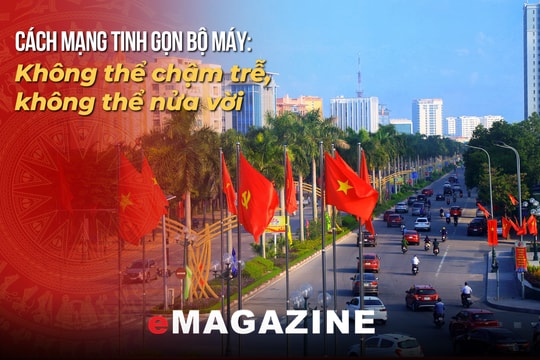
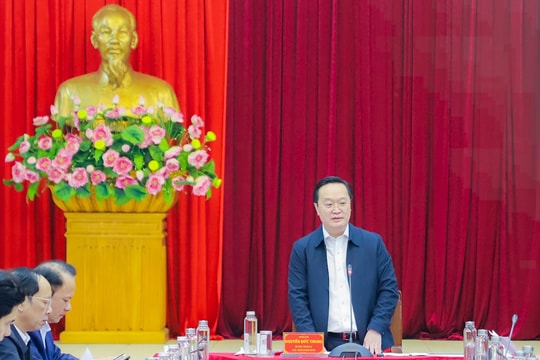
.jpg)
